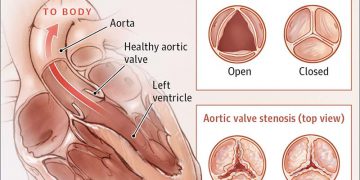Key #1 – GOAL SETTING – Have Heart in the Game
The first key to effective and smart goal setting is to have a positive emotion associated with your goal. The goal has to mean something to you. If the goal doesn’t mean anything to you, and there isn’t the right intensity of emotional connection to the goal, you will be far less motivated to do whatever it takes to achieve the goal.
For example, take a look at your current goals, and if there are any goals that lack positive intensity and motivation, ask yourself:
- Why would I have this goal in the first place?
- Am I doing the right things to achieve this goal?
- Am I trying to satisfy my own expectation or someone else’s or society’s expectation?
- For each goal, ask WHY IS THIS GOAL IMPORTANT TO ME? If you are not able to answer this question with any level of conviction, it will hold you back from achieving the goal even before you have started.
That’s why the goal setting phase is so important. Achieving any goal successfully is not about taking action to make things happen but about having the right type of goals in the first place. The goals should be important to YOU and have meaning. In fact, you should feel emotionally connected to the goal in a positive way.
If you’re finding it difficult to see past current life obstacles and create a deeper connection with your goals, it may benefit you to seek further clarity through Life Coaching services.
An easy way to find this emotional connection is to imagine that you have already achieved the goal and notice how you feel. Imagine the difference the goal would create in your life! Imagine what would open up in your future if you have successfully achieved the goal.
Key #2 – GOAL SETTING – Quality not Quantity
First, focus on a small number of really meaningful goals to achieve. This approach is far more valuable and achievable than having lots of goals. The reason is you have only a limited number of hours in a day, days in a week, and weeks in a year to devote to your goals. On the other hand, there is only so much physical and emotional energy that you could devote to these goals in a day. Trying to achieve too many goals at once will only scatter your focus and energy and dilute the results. In fact, it is always better to do a few things very well than trying to do lots of things poorly.
Even if you have lots of goals, select the mission-critical or top priority goals to focus on first. Once you have achieved these goals, you can move on to the other set of goals.
Key #3 – ACTION PLANNING – Realistic, Achievable Plans
All of your goals should be translated into action plans. You should be bold when setting the time frames to achieve your goals. For example, you should set deadlines to achieve each goal in its entirety and deadlines for all the smaller milestones along the way. Even though it is great to be bold when setting deadlines for your goals, notice whether you feel motivated, inspired, or burdened by your action plan to achieve the goal. If you feel pressured by the action plan, you should immediately change it.
Nothing will kill your goal achievement than unrealistic and unachievable action plans. Once you fail to achieve the goal within the set deadline, it can have a real dent in your confidence and enthusiasm. It isn’t to say that you should not reach for the stars. But you should set yourself up for success with action plans that resonate with your energy where you know that you can definitely achieve the goal.
Key #4 – TAKING ACTION – When You Don’t Want to Do What’s Good for You
There are many instances where you have a goal that you genuinely want to achieve, you are emotionally and energetically connected to the goal, and you also have an achievable action plan. BUT when it comes to taking action to achieve the goal, you cannot seem to follow through and do what it takes to achieve the goal.
This often happens when you want the end result but not the path that takes you there. In fact, you are not enjoying the action steps put in place to achieve the goal. Human beings are usually driven by pain & pleasure. Avoiding pain is a much bigger motivator compared to gaining pleasure. If you believe that some steps in your action plan involve “PAIN” or anything that you don’t enjoy doing, you will unconsciously try to avoid the pain by never taking action to achieve the goal. If you find yourself stuck in such a pattern, remember this:
. You can always have short-term pain – steps in your action plan that you don’t enjoy doing – for long-term gain – achieving your goal and living a better life than now, OR You can have short-term gain – avoiding the steps in the action plan that you don’t like doing – for long-term pain – staying stuck in your current reality by not achieving the goal.
Key #5 – FOLLOW THROUGH – Model Your Previous Success
In case you have successfully achieved a goal in the past, study the process to know what happened along the journey.
What was it about THAT goal that made you achieve it…
. Was it the type of goal?
. Was the goal something very important to you?
. Was someone else holding you accountable for achieving the goal?
. Was it because the goal was set up in a group setting where other people were also working on the same type of goal?
. Was it because you use a particular process or structure to stay on track?
Model your current goals on the same structure and process as your previously achieved goals. Why should you deviate or reinvent the wheel when you already know what works best for you?
Key #6 – FOLLOW THROUGH – Getting Back on the Wagon
When you fall off the wagon, get right back on. In fact, the ability to show up in your life each day with the same level of courage and dedication makes a lot of difference even when things are feeling like a hot mess and you don’t know what you are doing.
Remember – You don’t need to have the entire path laid down in front of you to succeed in your goal. You can make mistakes along the way, have unanswered questions, and be confused – since all of this is human. But as long as you consistently show up, you will progress. Progress is key & not perfection.
Setting yourself up for success to achieve your goals – Once you have gone through the process of smart goal setting, you need to make the shift to train your mind to set yourself up for success.
Your mindset plays a big part in how you feel, how you behave, the choices you make, and the actions you take. All of which will then become your results.
Follow – https://healthhuff.com for More Updates






































